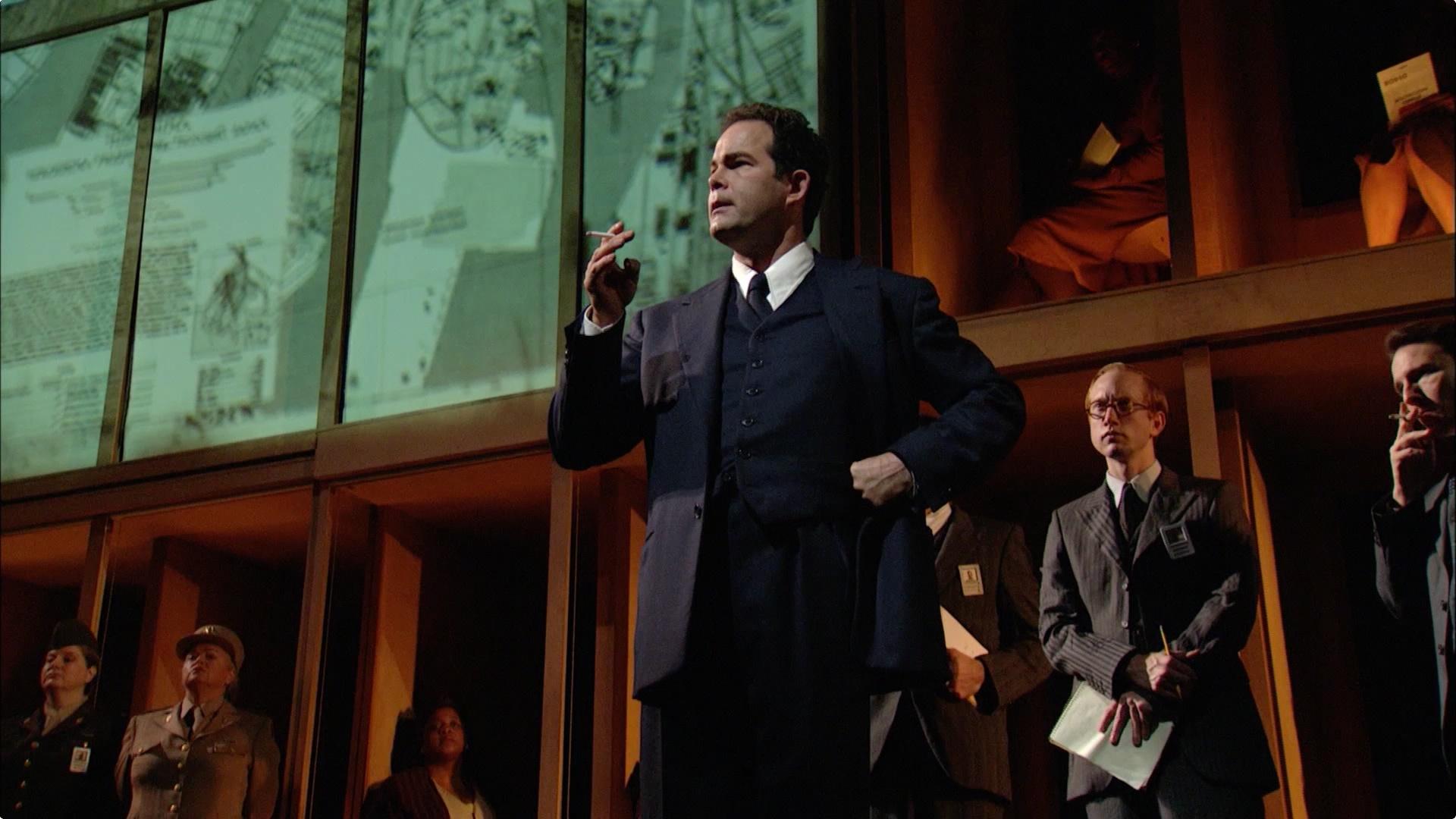
View Anytime – Doctor Atomic by The Metropolitan Opera
On July 16, 1945, an atomic bomb was tested for the first time in the deserts of New Mexico; within a few short weeks, the entire world would have to confront what this monstrous invention meant for humanity. Yet in Doctor Atomic, composer John Adams takes the audience back to the days immediately before the bomb’s first test to explore a more intimate side of this momentous event. The opera’s music is an excellent example of Adams’s signature “minimalist” style, while the libretto spotlights the complex feelings and conflicted loyalties of the Manhattan Project physicists—a small group of people tasked with developing the most destructive weapon the world had ever seen.
Themes
- This show is a reflective imagining of what this world-changing event may have felt like before it happened. The scientists don’t know exactly what is going to happen, and face dire risk if it goes wrong. How do you handle uncertainty, before making an important decision? How do you weigh the impact of your decisions not only for yourself, but for others?
- In retrospect, we know that the urgency of the atomic bomb’s development was not what the Manhattan Project team believed at the time; they were much farther ahead of Germany than they realized. Our viewpoint on their decisions may be influenced by our retrospective position; we can look into the past to see the big picture that they couldn’t in the moment. Are there times when we look at our own lives and reassess our previous choices? There is a saying that we don’t know what we don’t know. But once we DO know, how can we apply that into our present and future?
Always available
Pre-recorded
In partnership with
The Metropolitan Opera
Additional Information

View Anytime – Doctor Atomic by The Metropolitan Opera
Always available
Pre-recorded
In partnership with
The Metropolitan Opera
On July 16, 1945, an atomic bomb was tested for the first time in the deserts of New Mexico; within a few short weeks, the entire world would have to confront what this monstrous invention meant for humanity. Yet in Doctor Atomic, composer John Adams takes the audience back to the days immediately before the bomb’s first test to explore a more intimate side of this momentous event. The opera’s music is an excellent example of Adams’s signature “minimalist” style, while the libretto spotlights the complex feelings and conflicted loyalties of the Manhattan Project physicists—a small group of people tasked with developing the most destructive weapon the world had ever seen.
Themes
- This show is a reflective imagining of what this world-changing event may have felt like before it happened. The scientists don’t know exactly what is going to happen, and face dire risk if it goes wrong. How do you handle uncertainty, before making an important decision? How do you weigh the impact of your decisions not only for yourself, but for others?
- In retrospect, we know that the urgency of the atomic bomb’s development was not what the Manhattan Project team believed at the time; they were much farther ahead of Germany than they realized. Our viewpoint on their decisions may be influenced by our retrospective position; we can look into the past to see the big picture that they couldn’t in the moment. Are there times when we look at our own lives and reassess our previous choices? There is a saying that we don’t know what we don’t know. But once we DO know, how can we apply that into our present and future?
Additional Information
The history of the Manhattan Project depicted in this opera:
A real recording of the lead scientist, Dr. J. Robert Oppenheimer, after the test of the bomb was completed:


